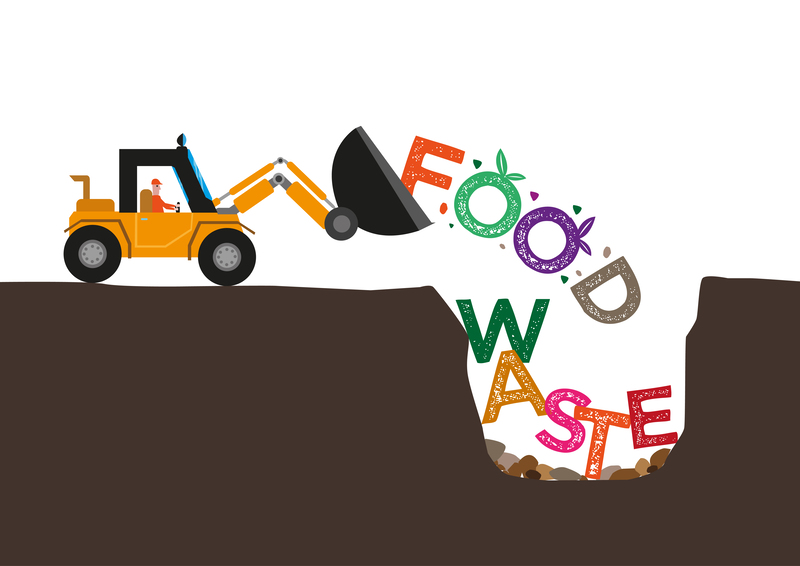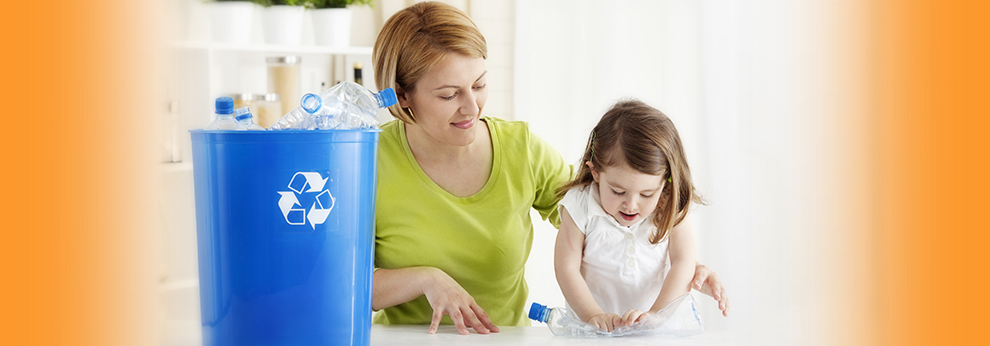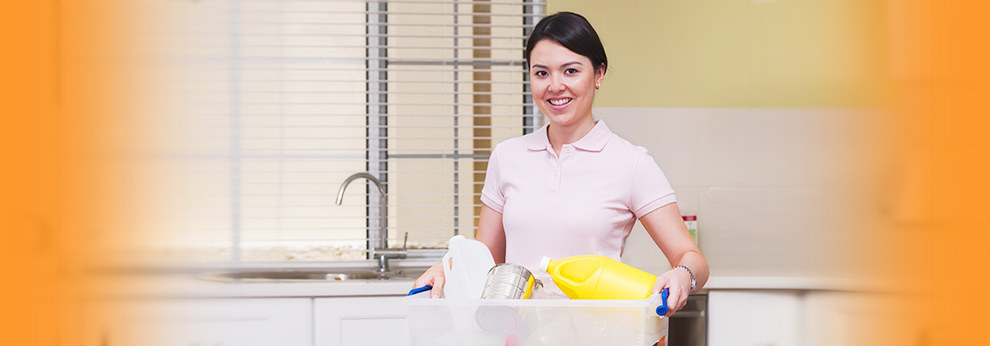Stay Green with Smart Waste Prevention at Home
Posted on 13/10/2025
Stay Green with Smart Waste Prevention at Home
Are you ready to make a significant and lasting impact on the environment while also saving money and making your home more efficient? Smart waste prevention at home is a powerful way to live greener and feel good about your contribution to the planet. In this comprehensive guide, we'll explore eco-friendly strategies, innovative technologies, and actionable tips to minimize waste, reduce your ecological footprint, and create a more sustainable lifestyle for your family.
Why Preventing Waste at Home Is Essential
Waste generation is a major environmental concern worldwide. According to the Environmental Protection Agency, the average American produces over 4 pounds of waste per day. This accumulates to enormous amounts when multiplied by households across the world!
- Environmental Impact: Landfills emit greenhouse gases like methane, contribute to groundwater pollution, and harm wildlife.
- Economic Savings: Preventing waste reduces disposal costs and lowers resource consumption, saving families money.
- Resource Conservation: Cutting waste reduces demand on raw materials, energy, and water--critical for a sustainable future.

Understanding Smart Waste Prevention at Home
Smart waste prevention means adopting intelligent, proactive steps to stop waste before it starts. It's a modern twist on the classic mantra: Reduce, Reuse, Recycle, now expanded to include smart planning, conscious consumption, and the use of technology. Embracing smart waste prevention supports a circular economy, in which resources are kept in use for as long as possible.
Main Benefits of a Home Waste Reduction Strategy
- Environmental Protection: Lower landfill contributions and resource use.
- Monetary Savings: Spend less on new goods and waste removal.
- Healthier Living: A tidier, more thoughtful home environment benefits both body and mind.
Step-by-Step: How to Stay Green with Smart Waste Practices
Step 1: Conduct a Home Waste Audit
The first step in smart waste prevention at home is knowing what you throw away. Spend a week tracking your household waste:
- What are you discarding most? (Packaging, food, paper, plastics?)
- What can be diverted from landfill through composting or recycling?
- Where is there unnecessary or avoidable waste?
Understanding your waste habits lets you target the biggest opportunities for reduction.
Step 2: Reduce First - The Power of Prevention
*The greenest waste is the waste that never exists!* Here's how to kickstart home waste prevention:
- Buy Only What You Need: Make shopping lists, stick to them, and avoid impulse buys--especially with perishable goods.
- Choose Products with Less Packaging: Opt for bulk items, refill stations, and brands with minimal or recyclable wrapping.
- Embrace Digital Solutions: Go paperless for bills, subscriptions, and documents.
- Avoid Single-Use Items: Use reusable bags, bottles, coffee cups, food containers, and cloth napkins.
- Plan Meals: Meal planning prevents food spoilage and excess packaging waste.
These easy changes are the backbone of smart waste prevention for eco-friendly living.
Step 3: Reuse and Repair
Before ditching an item, ask: Can this be repaired, repurposed, or given a second life?
- Repurpose and Upcycle: Old jars become storage containers, worn clothing becomes cleaning rags, and packaging can serve as organizing bins.
- Support Repair: Use fix-it guides or local repair cafes for electronics, appliances, furniture, or clothing.
- Host or Visit Swap Meets: Exchange toys, books, clothes, and household goods within your community.
Step 4: Optimize Recycling
Effective recycling is a key component of "staying green with smart waste prevention at home." To do it right:
- Know Local Rules: Every municipality has unique recycling guidelines--know what is accepted and prepared correctly.
- Clean and Sort: Rinse containers and sort by material to avoid contaminating recycling streams.
- Take Specialty Items to Drop-Off Centers: Batteries, light bulbs, electronics, and hazardous waste often require special handling.
*Remember, not everything can be recycled--reducing and reusing come first!*
Step 5: Composting--Turn Food Scraps into Gold
Composting is a brilliant, eco-friendly method for preventing kitchen waste. _With a small bin or a backyard pile, you can transform peels, coffee grounds, and yard trimmings into nutrient-rich soil for your garden_
- Start Simple: Even apartment dwellers can use a counter bin or indoor worm composter.
- Know What to Compost: Focus on fruits, veggies, grains, coffee filters, and yard waste--avoid meat and dairy unless you have a professional setup.
- Use Finished Compost: Fertilize houseplants, lawns, or garden beds naturally!
Smart Technology for Waste Reduction at Home
In today's digital age, technology can supercharge your home's green mission. Consider these *smart waste prevention systems and gadgets*:
Intelligent Recycling Bins and Sensors
- Smart Trash Cans: Some bins identify waste types and sort recyclables, keeping your system on track.
- Fullness Sensors: Receive smartphone notifications when bins are full so you empty them efficiently.
Food Inventory and Expiry Trackers
- Smart Fridges: Modern refrigerators keep track of food expiry dates and offer recipes to use items before they spoil.
- Inventory Apps: Keep a log of what's in your pantry to avoid double buys and curb food waste.
Donation and Sharing Apps
- Give Away or Trade: Apps like Buy Nothing, Freecycle, or local Facebook groups let you give unused items a new home.
- Food Sharing: Platforms such as OLIO connect neighbors to share surplus ingredients and meals.
Tips for Reducing Specific Types of Household Waste
Minimizing Plastic
- Choose Refillables: Switch to refillable cleaning, hygiene, and pantry products.
- Say No to Straws and Utensils: Bring your own reusables when eating out or ordering takeout.
- Opt for Glass or Aluminum: These materials are recycled more efficiently than plastics.
Cutting Down on Food Waste
- Meal Planning Is Key!
- Store Food Properly: Use airtight containers, freeze leftovers, and rotate older goods to the front.
- Love Ugly Produce: Buy "imperfect" fruits and vegetables--they are just as nutritious and prevent waste at the farm level.
Tackling Paper and Packaging Waste
- Go Digital: Switch to e-receipts, online bills, and digital subscriptions.
- Refuse Junk Mail: Use services to opt out of unwanted marketing material.
- Repurpose Packaging: Use boxes, packing peanuts, and wrapping for future shipping or organizing.
Kids & Family: Make Waste Prevention Fun
Instill eco-friendly habits early to build a culture of sustainability in your home. Here are family-friendly ways to stay green together:
- Gamify Waste Sorting: Turn it into a challenge with points and rewards for correct recycling or composting.
- Creative Reuse Crafts: Transform trash into art or useful household items.
- Read Books or Watch Documentaries: Teach kids about the environment and inspire action.
- Start a Family Compost Project: Watch food scraps break down and use the compost to grow herbs or veggies.
Community Impact: Extend Your Green Reach
Your actions at home ripple out to inspire neighbors and your broader community. Share your journey on social media, organize local cleanups, or collaborate on zero waste initiatives at schools and local groups.
- Host a "Green Open House" to share your tips and eco-friendly setup
- Join Community Sustainability Groups for support and new ideas
- Advocate for Better Local Recycling and Composting Programs
Overcoming Common Obstacles to Smart Waste Prevention
Implementing smart waste prevention at home isn't without its challenges. Here are common obstacles--and how to overcome them:
- Lack of Time: Start small with a single waste stream (like food scraps) and build up gradually.
- Changing Habits: Set reminders and place convenient bins or containers where they're needed most.
- Limited Space: Many solutions (such as countertop composters or stackable bins) are designed for apartments and condos.
- Unclear Recycling Guidelines: Bookmark your city's recycling web page for easy reference.

Final Thoughts: The Lasting Power of Staying Green
*Staying green with smart home waste prevention* is more than just a trend--it's a movement that begins right at your doorstep. Every bit you prevent from entering a landfill, every resource you conserve, and every new habit you form helps pave the way to a cleaner and healthier future.
Adopt these eco-friendly practices, integrate smart technology, and encourage your household to think before tossing! The combined efforts of individuals, families, and communities can lead to profound environmental--and personal--benefits. Start today, and watch your impact grow day by day.
Want More Inspiration?
- Explore local zero waste blogs for new upcycling ideas
- Sign up for community sustainability newsletters
- Connect with neighbors for swaps and sharing
Remember: Prevention is the best tool for waste reduction at home. Stay green. Stay smart. Start now!





